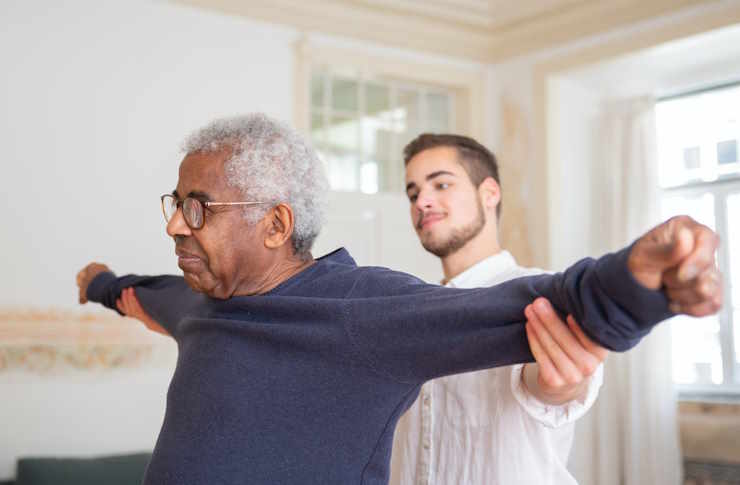What Really Happens in Senior Home Care: 7 Things Families Often Don’t Know
Senior care may seem simple-but there’s more happening behind the scenes than most families realize. From private care routines to emotional support roles, caregivers do far more than just assist with daily tasks. Here’s what really happens in senior living care-and why it matters.

What are the hidden responsibilities of senior caregivers?
Senior caregivers often take on responsibilities that extend far beyond basic assistance with daily tasks. While families may be aware of help with bathing, dressing, and medication management, caregivers frequently become unofficial household managers. They might coordinate doctor appointments, manage prescription refills, and even handle minor home repairs. Additionally, caregivers often act as social secretaries, helping seniors maintain connections with friends and family, and organizing outings or activities to keep their clients engaged and active.
How do caregivers provide emotional support to seniors?
Emotional support is a crucial, yet often overlooked, aspect of what caregivers actually do in home care. Many seniors face challenges such as loneliness, depression, or anxiety, especially if they’re dealing with health issues or reduced mobility. Caregivers become confidants, offering a listening ear and companionship. They celebrate their clients’ good days and provide comfort during difficult times. This emotional connection can significantly improve a senior’s mental health and overall quality of life, making it one of the most valuable secrets of senior living assistance.
What specialized skills do senior caregivers typically possess?
While basic caregiving skills are essential, many senior caregivers possess specialized knowledge that families might not initially consider. For instance, caregivers often have training in fall prevention techniques, which can be crucial for maintaining a senior’s safety at home. They may also be skilled in managing specific health conditions like dementia, Parkinson’s disease, or diabetes. Some caregivers are trained in physical therapy exercises or have expertise in nutrition for older adults, allowing them to provide comprehensive care tailored to each senior’s unique needs.
How do caregivers help maintain a senior’s dignity and independence?
One of the most delicate aspects of senior care is preserving the individual’s sense of dignity and independence. Skilled caregivers employ various strategies to achieve this balance. They might use assistive devices that allow seniors to perform tasks on their own with minimal intervention. Caregivers also practice patience, allowing seniors to complete tasks at their own pace whenever possible. They often employ gentle encouragement and positive reinforcement to boost confidence and maintain a sense of autonomy, even as the level of care increases over time.
What unique challenges do caregivers face in the United States?
In the United States, senior caregivers encounter several unique challenges. One significant issue is the growing demand for caregivers due to the aging baby boomer population, which can lead to high turnover rates and potential shortages. Caregivers also often navigate complex healthcare systems and insurance policies on behalf of their clients. Additionally, they must be aware of elder abuse laws and reporting requirements, which vary by state. Despite these challenges, many caregivers find their work deeply rewarding, as they play a crucial role in supporting America’s aging population.
How much does professional senior home care typically cost?
Understanding the cost of senior home care is crucial for families planning for their loved ones’ future. The expense can vary significantly based on location, level of care needed, and the specific services provided.
| Type of Care | Average Hourly Rate | Average Monthly Cost (44 hours/week) |
|---|---|---|
| Companion Care | $18 - $25 | $3,168 - $4,400 |
| Personal Care | $20 - $30 | $3,520 - $5,280 |
| Skilled Nursing | $35 - $80 | $6,160 - $14,080 |
Prices, rates, or cost estimates mentioned in this article are based on the latest available information but may change over time. Independent research is advised before making financial decisions.
It’s important to note that these figures are national averages, and costs can vary significantly depending on your location and specific care needs. Some families may be eligible for financial assistance through programs like Medicaid or Veterans Benefits, which can help offset these expenses.
How do caregivers work with family members to provide comprehensive care?
Effective senior care often involves a collaborative effort between professional caregivers and family members. Caregivers typically maintain open lines of communication, providing regular updates on the senior’s condition and any changes in care needs. They may offer guidance to family members on how to interact with seniors who have specific health conditions, such as dementia. Many caregivers also work to involve family members in care planning, recognizing the importance of maintaining family connections. This partnership approach ensures that seniors receive well-rounded care that addresses both their physical and emotional needs.
In conclusion, senior home care encompasses a wide range of responsibilities and skills that go far beyond basic assistance. From providing emotional support to navigating complex healthcare systems, caregivers play a multifaceted and crucial role in enhancing the lives of seniors. By understanding these often-overlooked aspects of care, families can better appreciate the value of professional caregivers and work more effectively with them to ensure their loved ones receive the best possible care and support in their golden years.
This article is for informational purposes only and should not be considered medical advice. Please consult a qualified healthcare professional for personalized guidance and treatment.




